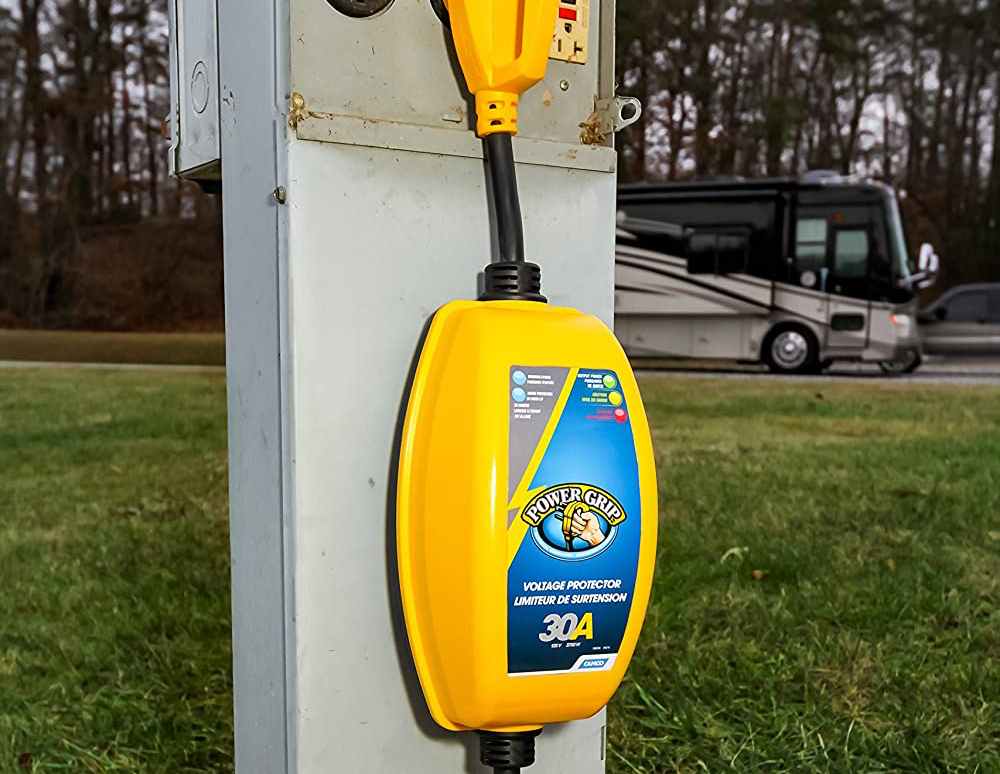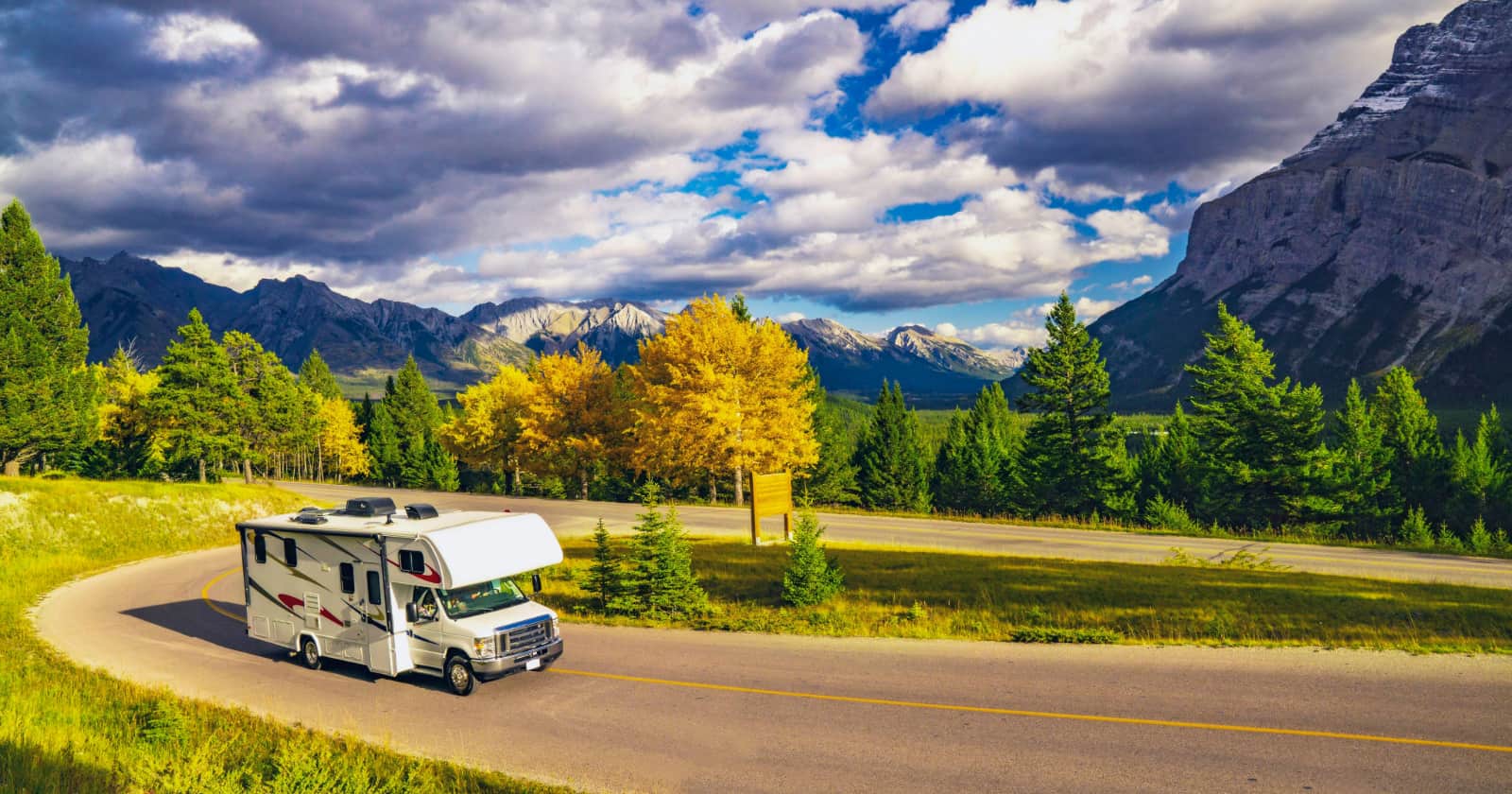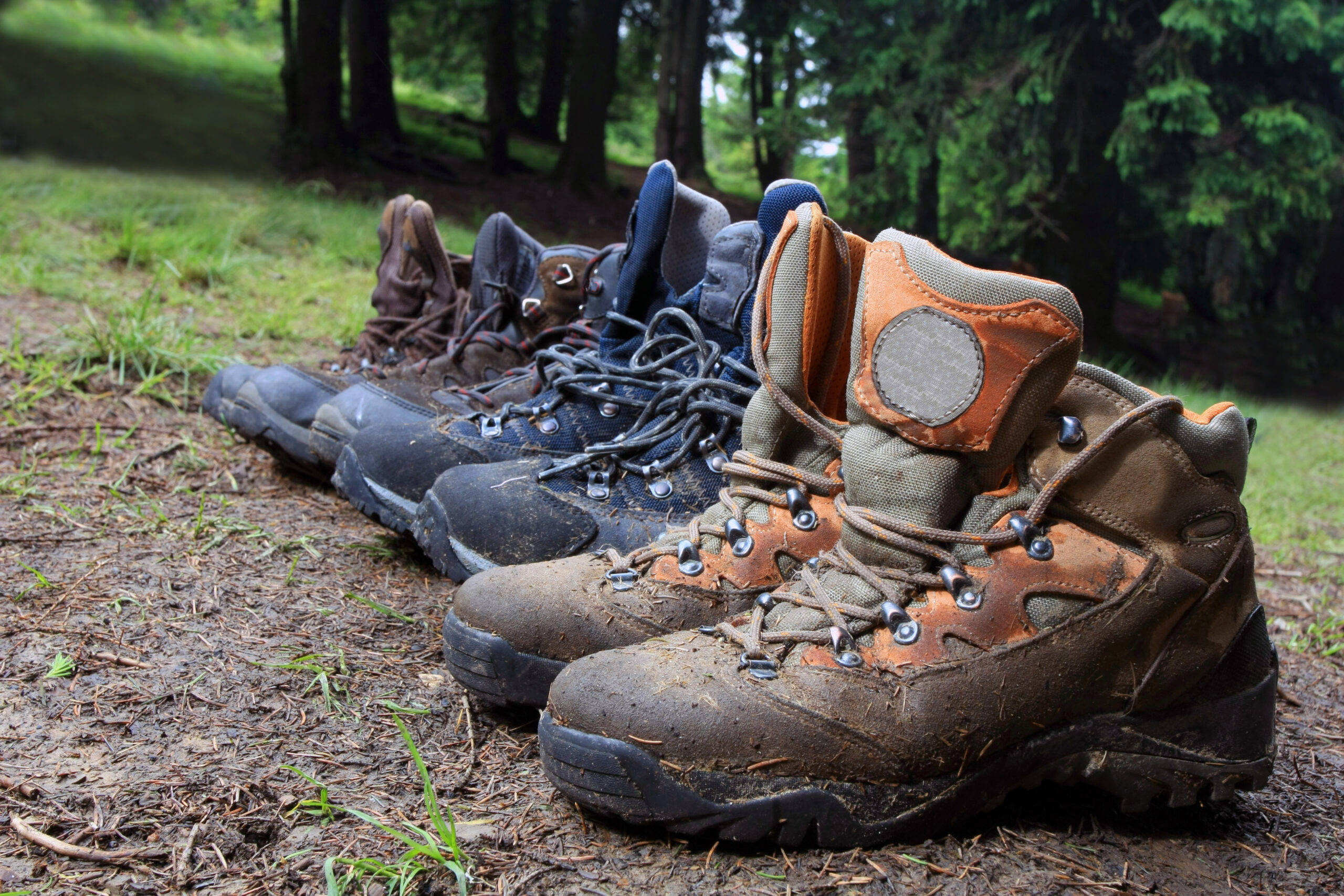
Surge Protectors: A Complete Guide For RVers
Surge protectors are essential for your RV. They are designed to protect your RV from any sudden power surge that may occur while on the road. This article will outline the benefits of installing an RV surge protector and explain why it’s worth the investment.
What is an RV surge protector?
A surge protector helps protect your RV and its components from power surges and other forms of electrical damage. In addition to the obvious protection from power surges, an RV surge protector also helps protect your RV from other electrical issues such as brownouts, improper wiring, and incorrect voltage.
- Protects your RV from voltage spikes and surges
- Automatically shuts off power in the case of an overload
- Universal compatibility with all RV power sources
What are the benefits of a surge protector?
Power surges can be a big problem for RV owners, leading to costly electrical repairs and damage to the RV’s electrical system. Installing an RV surge protector is a great way to protect your RV from power surges and other electrical problems.
Avoid costly repairs
- Helps prevent costly repairs caused by voltage spikes and surges
- Can help extend the life of your RV’s appliances
- Reduces the risk of electrical fires
Increased safety
- Helps reduce the risk of electric shock and other hazards
- Can help detect and prevent faulty wiring
- Helps protect your RV from power outages
Better performance
- Provides consistent power to your RV’s appliances
- Helps reduce the risk of damage from voltage fluctuations
- Can help your RV’s appliances run more efficiently
What is a good RV surge protector?
- Progressive Industries SSP-30XL: This model provides excellent protection against electrical issues like open ground, reverse polarity, open neutral, and more. It’s easy to use, designed for outdoor use, and has a locking bracket for added security.
- Camco Dogbone RV Circuit Analyzer: This is a versatile and budget-friendly option that can handle up to 2100 Joules. It has a diagnostic LED, and it can identify wiring issues like reverse polarity, open neutral, and open ground.
- GEARGO RV Surge Protector: This top-rated option identifies faulty power and offers 8000 Joules of surge protection. The adapter circuit analysis instrument is used to detect the connection error of the electric system with a grounded safety feature for your electronic equipment.
MobileMustHave.com also has an excellent selection of surge protectors for RVs. Make sure to choose one that matches your RV’s power requirements (30 amp or 50 amp) and suits your specific needs. It’s always best to do your research before making a purchase to ensure you’re getting the best product for your circumstances.
Important factors to consider
Consider the following factors when you are shopping for an RV surge protector:
- RV system compatibility: The most crucial factor to consider is whether it is compatible with your RV’s electrical system, which is usually either 30-amp or 50-amp. Make sure to buy the one that matches your RV’s system.
- Joules rating: The Joules rating indicates the amount of energy it can absorb before it fails. A higher rating means more protection, so it’s generally better to choose a surge protector with a higher Joules rating.
- UL certification: Look for one that’s certified by Underwriters Laboratories (UL). This independent organization tests electrical devices for safety.
- Indicator lights: Many models have indicator lights that show the status of the protector and the power supply. These lights can help you identify potential issues.
- Automatic shutoff: Some models automatically shut off power to the RV if they detect a dangerous voltage surge or wiring issue. This can be a useful feature for protecting your RV’s electrical systems and appliances.
- Weather resistance: If you’re planning to use it outdoors, look for one that’s designed to resist weather and UV damage.
- Warranty: Consider the warranty offered with the surge protector. A good warranty can provide added peace of mind.
- Brand reputation: Consider the reputation of the brand and the reviews of the product. It’s usually worth paying a bit more for a product from a reputable manufacturer with positive reviews.
- Price: While you generally get what you pay for, remember to balance cost with your actual needs. Sometimes the most expensive option may offer features you simply don’t need.
- Portable vs Hardwired: Decide whether you want a portable or a hardwired model. Portable models are easy to use and move, while hardwired models are installed into your RV’s electrical system and can’t be easily stolen.
Keep in mind that a good RV surge protector is an investment in your RV’s longevity and your safety. It’s worth spending some time to research and find the right one for your needs.
Are surge protectors good for more than one surge?
Yes, RV surge protectors are typically designed to handle more than one surge. However, the lifespan and effectiveness of an RV surge protector depend on a variety of factors including the size and frequency of the power surges it encounters.
Every surge protector has a Joules rating. This rating indicates the amount of energy the protector can absorb before it fails. If a surge protector is exposed to a large surge or multiple smaller surges that exceed its cumulative energy rating, it may no longer provide effective protection.
Most quality surge protectors will provide an indication, usually through a LED light, when they are no longer capable of offering protection. It’s important to regularly check the indicator light to ensure it’s still functioning properly.
That said, it’s generally a good idea to replace surge protectors every few years, or sooner if your RV experiences a major surge event. Like most electronic devices, surge protectors can degrade and become less effective over time. Additionally, new models may offer improved technology and greater protection compared to older models.
How many amps of load can an RV surge protector handle?
RV surge protectors are typically designed to handle either 30 or 50 amps of load, to match the most common RV power systems.
It’s very important to match your surge protector to your RV’s power system. If your RV uses a 30-amp system, you should use a 30-amp surge protector. If your RV uses a 50-amp system, you should use a 50-amp model. Using the wrong type can result in inadequate protection and potential damage to your RV’s electrical system.
Before purchasing, you should confirm the amperage of your RV’s power system. This information should be listed in your RV’s owner’s manual. If you’re unsure, you may wish to consult with a qualified electrician or RV service center.
Are RV surge protectors worth it?
Yes, investing in a good RV surge protector is generally considered to be worth it, for several reasons:
- Protection from electrical damage: Power surges, which can occur for a variety of reasons, can cause significant damage to your RV’s electrical systems and any electronics plugged into it. This includes appliances like refrigerators and air conditioners, as well as computers, televisions, and other devices. Repairing or replacing these items can be costly.
- Prevention of wiring issues: Some surge protectors can also detect and alert you to faulty wiring at a campground power pedestal, such as open ground, reversed polarity, or open neutral conditions, which can all cause damage to your RV.
- Cost-effectiveness: Compared to the potential cost of repairing or replacing damaged appliances or systems, the cost of a good surge protector is usually quite reasonable.
In short, while not mandatory, an RV surge protector provides an added layer of insurance to protect the electronic devices and electrical systems in your RV. It’s a small investment that could save you from much larger expenses down the line.
Conclusion
- An RV surge protector can help protect your RV from electrical damage and improve performance
- Provides a layer of safety and security against voltage spikes and surges
- Can help you save money by avoiding costly repairs and extending the life of your RV’s appliances
Related articles:




I have a Watch Dog and being i’m not rich by no means is why Watch Dog and I like the availably to check bye just looking if I have power
I am recently started using the Active Start soft start surge protector. Not only does it protect against surges and voltage fluctuations it also helps with amperage consumption allowing you to run two a/c units on 30amp. I’m still putting it through its paces and so far so good. Previously I was using the Watchdog and like it a lot. I do like the remote functionality of it. I also can keep a spare surge circuit in case of an emergency eliminating down time waiting for a replacement. I also found out that the Active start can be used in conjunction with the watchdog giving you extra protection and soft start coverage for the whole RV.
I was in severe thunder storms in AL and used up all my joules. Thank goodness the surge protector was protecting my rig. It still gave me voltage monitoring and protection, just no surge protection. Replaced it with a higher joule rated unit on my next stop.
I have a Progessive. The 50 amp side went out. I notified the company, took pictures of the unit and they sent out a new one no questions asked.